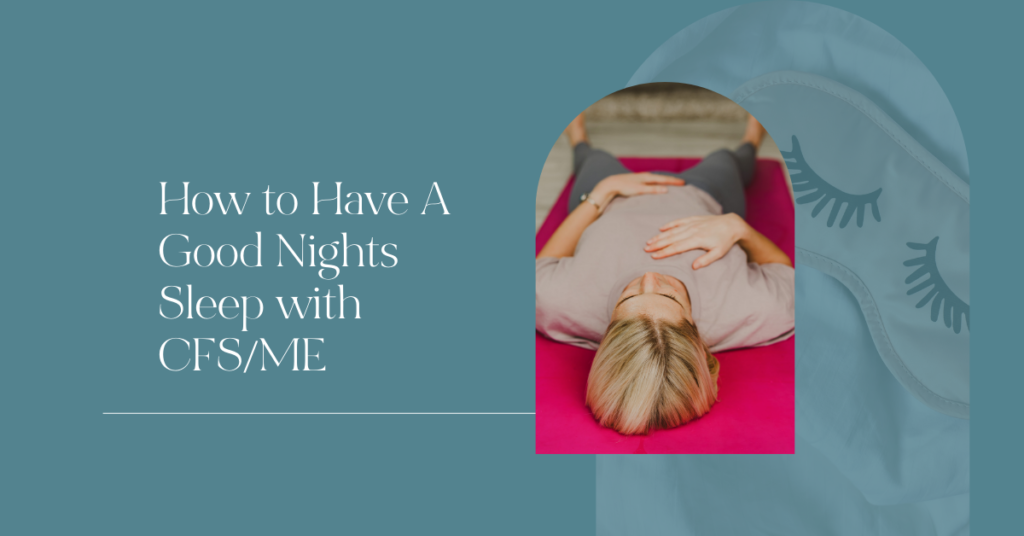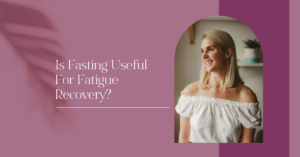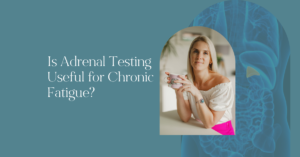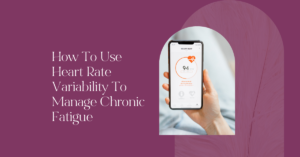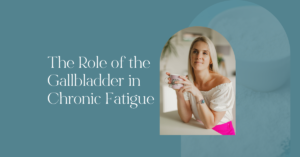People with Chronic Fatigue Syndrome/Myalgic Encephalomyelitis (CFS/ME) often experience disrupted sleep patterns and may have difficulty getting restorative sleep. This can lead to feelings of fatigue and a worsening of other symptoms.
Sleep disturbances are a common symptom of CFS/ME, and many individuals with the condition report problems with both falling asleep and staying asleep. They may also experience vivid dreams, night sweats, and restless leg syndrome, which can further disrupt sleep.
Additionally, some individuals with CFS/ME may experience a phenomenon called post-exertional malaise, in which physical or mental activity can exacerbate symptoms, including sleep disturbances.
Although sleep disturbances in CFS/ME are common, they do not have to be the norm. In this blog we’ll look at common causes of disturbed sleep and how you can support your body to have a better night’s sleep. Firstly, we’ll get a better understanding of sleep in general and why it is important for health and fatigue.
Stages of Sleep
There are generally five phases of sleep, which are typically categorised as Rapid Eye Movement (REM) sleep and Non-Rapid Eye Movement (NREM) sleep.
NREM sleep is further divided into three stages:
- Stage 1: This is the transition period between wakefulness and sleep. It is a light sleep, and people in this stage can be easily awakened. During this stage, the brain produces alpha and theta waves, and muscle activity slows down.
- Stage 2: This is a deeper sleep than stage 1, and people in this stage are more difficult to awaken. The brain produces bursts of electrical activity called sleep spindles and K-complexes, which are thought to help prevent awakening from sleep due to external stimuli.
- Stage 3: This is the deepest stage of NREM sleep, also known as deep or slow-wave sleep (SWS). It is the stage of sleep that is most restorative and important for physical and mental restoration. During this stage, the brain produces delta waves, and muscle activity is minimal.
REM sleep is the final stage of the sleep cycle and is characterised by rapid eye movements, as well as a high level of brain activity, which is similar to the waking state. This is the stage of sleep in which we experience vivid dreams. REM sleep is essential for learning, memory consolidation, and emotional regulation.
The sleep cycle generally lasts around 90 minutes, with NREM sleep occupying the first half of the night and REM sleep occurring more frequently in the second half.
Why is sleep important for brain health and fatigue in CFS/ME?
Sleep is crucial for brain health and reducing fatigue because it plays a critical role in a variety of physiological and cognitive processes.
During sleep, the brain performs important restorative functions, such as consolidating memories, repairing damaged tissue, and flushing out toxins. Here are a few reasons why sleep is important for brain health and reducing fatigue:
- Memory consolidation: Sleep plays a critical role in memory consolidation, which is the process of transferring information from short-term memory to long-term memory. During sleep, the brain reactivates and strengthens the neural connections that form memories, making them more resistant to forgetting.
- Emotional regulation: Sleep is also important for emotional regulation, allowing us to better regulate our mood and cope with stress. During sleep, the brain processes and consolidates emotional experiences, helping us to process and regulate our emotions more effectively.
- Physical restoration: Sleep is important for physical restoration, allowing the body to repair and regenerate tissues, replenish energy stores, and release growth hormones.
- Reduction of fatigue: Sleep is essential for reducing fatigue, as it helps to restore energy levels and replenish the brain’s resources. Individuals who don’t get enough sleep are more likely to experience fatigue, mood swings, and cognitive impairment.
Overall, sleep plays a critical role in maintaining brain health and reducing fatigue. Ensuring that you get enough quality sleep can improve memory, emotional regulation, physical restoration, and reduce fatigue.
Common Diet and Lifestyle Factors That Influence Sleep
There are several diet and lifestyle factors that can influence sleep quality and duration. Here are some of the most common ones:
Caffeine
Consuming caffeine-containing drinks or foods, such as coffee, tea, chocolate, and energy drinks, can interfere with sleep. It is recommended to avoid consuming caffeine at least 4-6 hours before bedtime. Ideally no later than midday – although I do tend to have a cheeky square of chocolate post dinner which doesn’t affect me 😉
Alcohol
Most people with chronic illness already know that alcohol doesn’t agree with them and tend to avoid it. In case you are someone who still drinks alcohol it is worth noting that, although alcohol may help you fall asleep faster, it can disrupt the quality of your sleep and lead to waking up during the night. It is recommended to limit alcohol consumption or avoid it altogether before bedtime.
Smoking
Similar to alcohol, most people with chronic illness, at least my client base, do not smoke. There are many reasons not to smoke if you have a chronic illness. Regarding sleep specifically, nicotine is a stimulant that can interfere with sleep, so it is recommended to avoid smoking before bedtime.
Meal Timing
Eating large meals close to bedtime can interfere with sleep, as digestion can disrupt sleep. It is recommended to have a blood sugar friendly dinner at least 2-3 hours before bedtime.
Exercise
Exercise is tricky for those with CFS/ME and other Chronic Illnesses. The right amount of exercise may help to improve sleep quality but exercising outside of your capacity and PEM may have a negative impact on sleep.
General advice for “healthy” populations is to avoid vigorous exercise within 2-3 hours of bedtime. I would argue to avoid any exercise within 2-3 hours of bedtime. For me personally, I find exercising before midday best for my nervous system. Walking later in the afternoon is acceptable.
Evening Light Exposure
Exposure to bright light in the evening can interfere with the body’s natural production of melatonin, a hormone that regulates sleep. It is recommended to avoid bright screens, such as phones and computers, for at least 1-2 hours before bedtime.
You may also want to use low level lighting such as lamps after sunset and avoid the use of bright overhead lights.
Relaxation Techniques
Engaging in relaxation techniques, such as meditation or deep breathing exercises, can help promote better sleep. Ideally we want to support the nervous system across the entire day. This means there will be less work to do in the evening to help the system settle.
I recommend regular “nervous system snacks” 3-5 times per day for 3-5 minutes. The exact techniques are taught in my Nurturing Resilience Program.
Sleeping Environment
Creating a comfortable sleeping environment, such as keeping the bedroom dark, cool, and quiet, can also promote better sleep. Weighted blankets can be useful for someone who has a lot of anxiety or experiences a lot of stress and nervous system activation.
Lesser Known Factors That May Be Influencing Your Sleep
These are lesser known factors that may be more prevalent in CFS/ME and chronic illness that may be impacting your sleep.
Low Cortisol
High cortisol levels are a consequence of high stress, something that would negatively impact falling asleep. But what about low cortisol?
Cortisol helps to stabilise blood sugar by sending stored sugar from the liver into the bloodstream. If cortisol is too low and blood sugar drops in the night you may experience a surge of adrenalin to bring blood sugar back into a normal range. This can be a cause of nighttime waking.
Blood Sugar
Stable blood sugar is important for a healthy brain and good energy levels. If blood sugar drops low in the night, this can cause a surge of adrenalin or an increase in cortisol to restabilise blood sugar.
One of the main causes of low blood sugar during the night can be low cortisol. It can also be influenced by blood sugar stability across the entire day. Therefore, the meals we eat across the entire day are just as important as the meal we eat in the evening. More on blood sugar here.
Histamine
Mast cell activation syndrome (MCAS) and histamine intolerance may be part of the complex web of imbalances in Chronic Fatigue Syndrome (CFS/ME) and other chronic illnesses. High Histamine levels and MCAS affect many different body systems and this includes sleep.
If you suspect you may have MCAS or a Histamine Intolerance you can read more about it here. A low histamine diet, certain supplements and getting to the bottom of histamine triggers may all support sleep.
Ketosis
If you are someone who follows a ketogenic diet, a drop in ketones at night time may influence sleep in a similar way that a drop in blood glucose could influence sleep. An insurance policy against this would be to supplement with MCT oil prior to bed to keep ketone levels topped up at night.
Digestive Health
Digestive health may positively or negatively impact sleep. Many neurotransmitters are produced in the gut and a healthy gut microbiome may have a positive impact on sleep. Conversely, digestive imbalances can lead to inflammation, discomfort, disrupted neurotransmitter production and poor sleep as a consequence.
Morning Light Exposure
When working on better sleep, it is easy to focus on what is happening the hours before bed. But what we do in the morning impacts our circadian rhythm and this can have an impact on melatonin levels later in the day.
There is plenty of research to suggest that morning light exposure is essential for health and wellbeing. Specifically this means:
- On a sunny day – 3 minutes of morning light on your eyes within 30-60 minutes of waking
- When there is some cloud cover – 10 minutes of morning light on your eyes within 30-60 minutes of waking
- When there is dense cloud cover – 20-30 minutes of morning light on your eyes within 30-60 minutes of waking
Mould Mycotoxins and Frequent Urination
Getting up in the night to urinate can be annoying, but for the most part it is manageable. We can help ourselves by reducing fluid intake to a minimum a few hours before bed. However, if you are someone who is affected by mould illness, it is worth noting that certain mycotoxins (Ochratoxin and Citrinin) can irritate and even damage the kidneys leading to frequent urination, multiple times per night. Addressing Mould Illness and supporting the kidneys should therefore be considered as part of your sleep repair plan. You can read more about chronic fatigue and mold illness here.
Supplements That Support Sleep*
When working with clients, I know that they feel so much better when I can get them sleeping better. We work on almost everything already mentioned, but supplements can make a big difference.
My favourite products to use are:
- L-theanine
- Lemon Balm
- Magnesium Threonate (because it crosses the blood brain barrier)
- Glycine
I also like the combination product called “Sleep” by the company, Feel. It does contain 5 HTP which can exacerbate symptoms of pain, low mood and poor sleep in some people. Therefore, please consult with your health care practitioner before taking this supplement.
**Supplements may interact with medications and therefore should be taken under supervision of your doctor or health care provider.
Concluding Thoughts
Sleep can be elusive if you are experiencing a chronic illness such as CFS/ME. But, if you can crack the sleep code and get a good amount of quality sleep each night, this will do wonders for the trajectory of your recovery. If you would like more help getting your sleep, and the rest of your recovery, on its way, you can find out more about working with me here.

